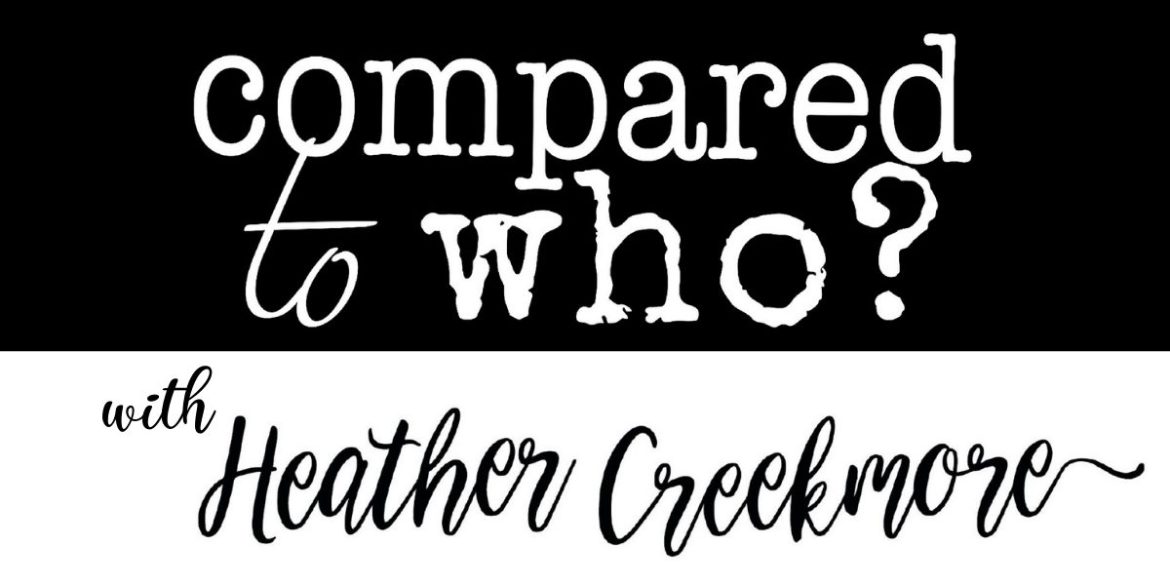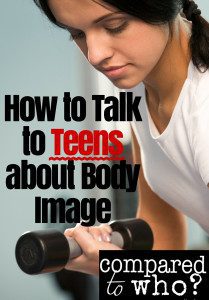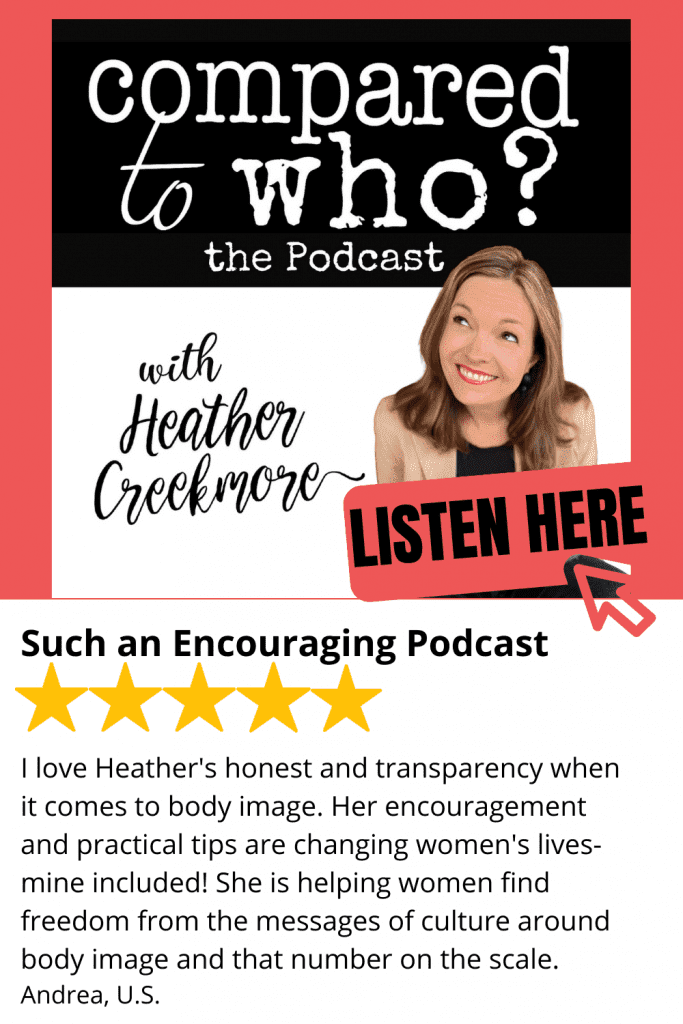Another great question in the “Questions about Body Image and Comparison” series.
Dear Heather:
I’m a high school teacher and I see so many of the girls (and even boys) in my class struggling with body image. I can’t speak overtly about Jesus in class, so I try to tell them things like “It’s what’s on the inside that counts.” But, it feels like the messages never get through. Do you have any recommendations of ways that I can help my students on this issue? How do I talk to teens about body image?
Sincerely,
J in Pennsylvania
******************
Dear J:
What a great question! If all the posts on my blog say that Jesus is the answer…and yet you can’t say the word “Jesus” how could you possibly help someone with this issue? I still think there’s a way.
If you want to talk to teens about body image, here’s where to start:
First: Let me encourage you to just be real. Teens, especially, can smell a fake. They know when your speak doesn’t match your life. So, if you are trying to convince them that appearance isn’t important while, at the same time, stressing about what you look like — they will see that.
So, if you don’t feel like the saying “It’s what’s on the inside that counts” helps you, personally, with this issue. Then, don’t try it with them. I’d also encourage you to not try to help them build their “self-esteem”– studies show that college students have some of the highest rates of self-esteem ever recorded. Teens don’t need to know they are awesome. This actually exacerbates the body image problem. Their generation has heard this hollow message of “love yourself” for their entire lives. The very fact that our teens are still struggling–in unheard of numbers–with anxiety, depression, eating disorders and suicide–proves the point that self-esteem building isn’t working.
Second: Instead, your answer for them is found in one word: Purpose.
You can talk about purpose without mentioning Jesus, of course. But as conversations about purpose deepen (perhaps after school) Jesus can certainly be a focus of the conversation at that point. Without Him, we will all struggle to ever identify our true purpose.
Engage in conversations about what they were created to do, to be, to accomplish. Ask provocative questions about how their looks can really help them do this? Ask questions like: Is it more important that they have a bikini body or good grades to get into college? Why? See if you can take them on a journey where they recognize that their purpose–their ultimate goal–must be bigger than a goal to look a certain way.
Third: Help them understand that beauty lies–you don’t need it to live a meaningful life and find purpose.
While in school though, I believe you can encourage your teens to stop trying to derive their value from the way they look by exposing the ways that beauty lies. Talk about current examples of women (and maybe men) who are doing this. One contemporary example may be the Kardashian sisters. Ask if the teens actually believe that because they are beautiful their lives are better. Talk about their failed marriages. Their struggles. Talk about whether or not the teens actually believe that beauty has bought them anything more than 5 minutes of fame.
If you have more time, you can also take them on a “history trip” examining other women who were deemed beautiful for a season in our culture’s history, yet who still struggled in this life. One example is Marilyn Monroe–the ultimate “sex symbol”–over dosed on drugs at age thirty-six, taking her own life. She had beauty. She had fame. But, she didn’t have the joy, peace or happiness that we sometimes, falsely, believe that beauty buys.
Most teens should be able to engage in a thoughtful conversation about what beauty really means. Perhaps assign them a “beautiful” person’s life to study–so they can discover for themselves that beauty didn’t mean pain free.
If you like the assignment concept–another idea may be to have each student study someone who they believe lived out a great purpose here on earth. Helen Keller, Albert Einstein, Amelia Earhart . . .politicians, scientists, musicians . . .it can be anyone that they truly believe accomplished something purposeful and meaningful during their living years. Then, ask your students to examine the role that their appearance played in that accomplishment.
My prayer in all this would be that somewhere along the line, one of these students asks you to share why you are so confident in your purpose here and that this would be an opening to tell them about how much Jesus loves them and how His sacrifice for them proves they have tremendous purpose. But, if limited in what you can say on this front in class–I think any of the above suggestions will help challenge their minds on the topic of body image.
[mc4wp_form id=”4141″]





0 Comments